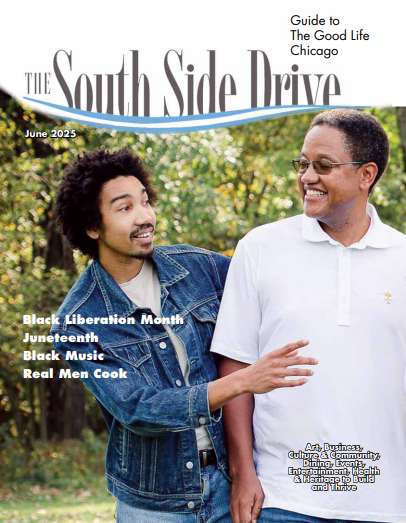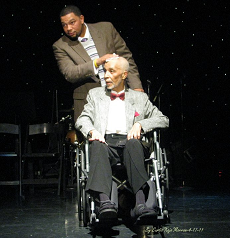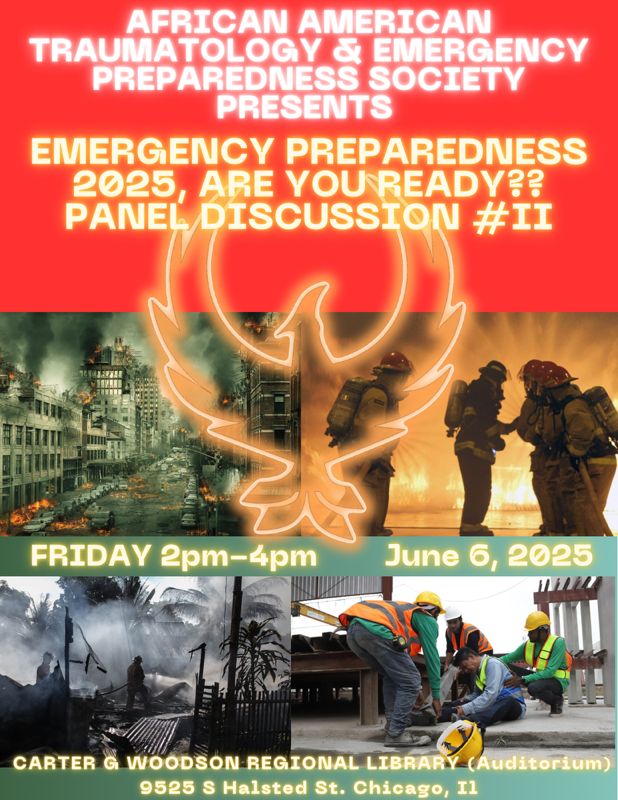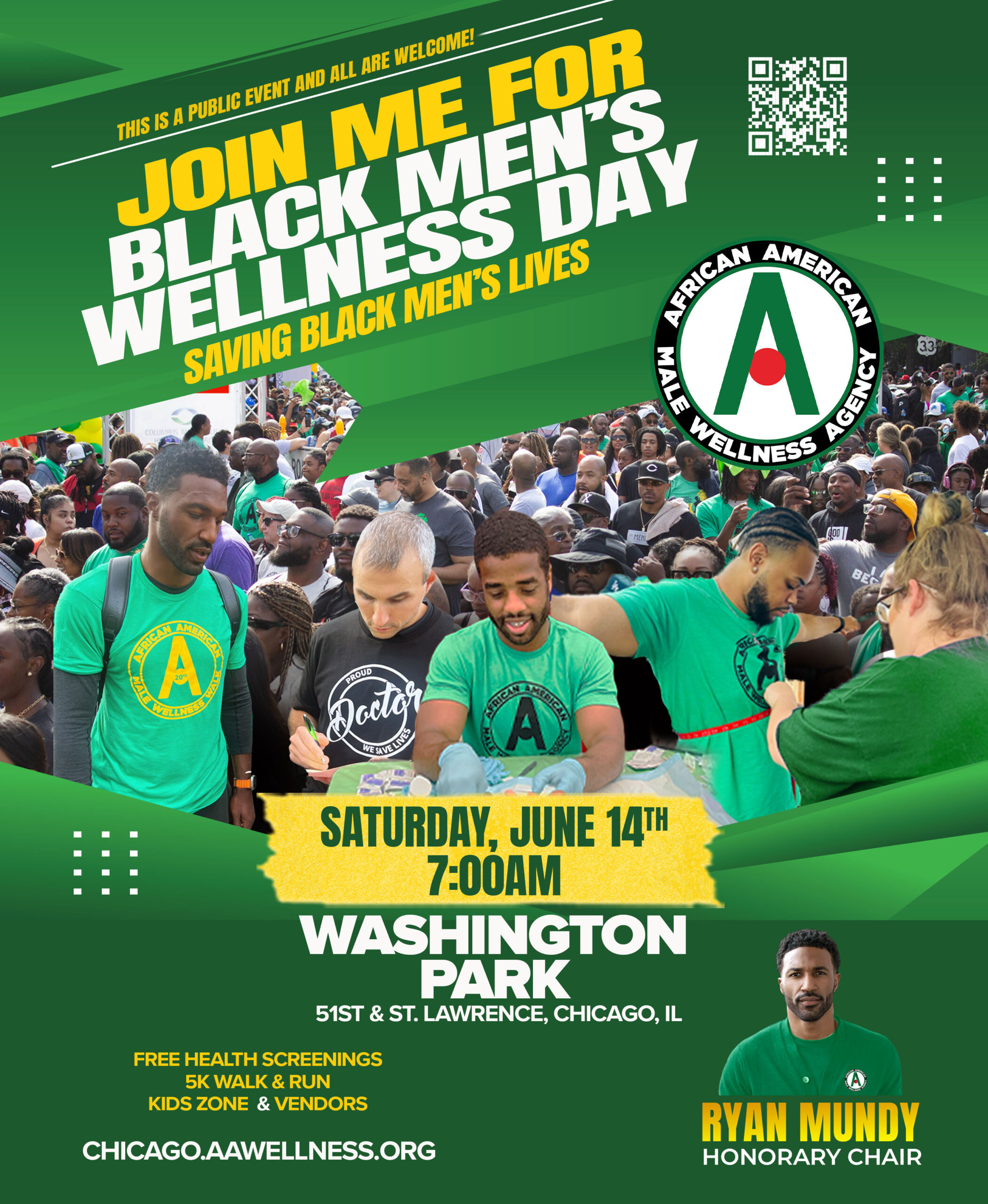To Chicago and much of the nation, Eric Werner was a one-of-a-kind, loved and admired photographer. To Toussaint Werner, Eric Werner was the disciplinarian, the mentor, the man he called dad. South Side Drive Magazine asked Toussaint to share with our readers remembrances of his father, in his own words.
Toussaint Werner’s reflections:
To the world my father was a well-known, highly regarded photographer. To me he was Daddy. I didn’t have any context for the impact his own journey had on how he parented me until I became a man myself. When I was much younger, I always deemed him as a very hard man. I would look around at my friends and realize they didn’t have the lessons and responsibilities I had. That irritated me then, but as I grew into manhood, I realized how valuable that kind of upbringing was.
There’s a movie and a book called “Fences.” James Earl Jones played the father in the first adaptation, and most people who saw the second adaptation, which featured Denzel Washington as the dad, considered it to be Denzel’s most demeaning role. I remember going to see that movie in the theater after my dad had passed on, and I couldn’t control the tears. I didn’t see it as demeaning at all. I saw it as a love language an adult conveyed to a young boy walking into manhood, and it was very similar to the relationship me and my father shared.
My dad was a hardworking guy, who had a lot of rules in our home, specifically around me. I vividly remember my father saying things like, “If you’re not going to be anything else in the world, you’re going to be a man.” He wanted to instill that in me. So, early on there was a lot of conflict, because he was not compromising in his understanding of the reality that I was going to have to face as a Black man, and he wanted to build me up, with the kind of armor he knew it would take for me to survive this journey. I wasn’t able to fully grasp that until I was about twenty-five , and that’s when the dynamics between us changed immensely. I always held him in a very high regard. I always thought he was brilliant. I always idolized him. But as I started to enter into my own journey of becoming a man, I started to respect him in a very different way and our relationship turned from father and son to more mentor/mentee.
My dad was honored as a Black history maker, even before he passed on. He photographed a lot of elite faces and generated and warranted great relationships. I remember going to the Final Call, having a relationship with Minister Farrakhan as a child, five, six years old, having a relationship with Jesse Jackson, meeting actors like Spike Lee, Wesley Snipes, and world leaders like Desmond Tutu. On the outside looking in, the access and opportunities we had might have looked one way, but on the inside looking in it was very different. There was the reality of being a Black photographer at that time. Yeah, I had this access, I could meet these people, and the world sees my daddy in that light. But there were winters when we didn’t have heat. Yet, our home situation reinforced how much I valued him because of the kind of man he was. He would take on obscure jobs working outside of his field where people in those places didn’t really know who he was.
I think my life mimicked his in a lot of ways. For a long time, I tried to avoid that, because I didn’t want to engage in the hardship that came with being a Black creative in America where there was no regard for creatives in general, and definitely not for Black creatives. I always had the creative gene, but I probably set up in my mind that was never going to be a lucrative possibility for me because I had to raise my own family. But I think when you have that gene, and you have a work ethic, it’s very hard to deny your destiny. So ultimately, I accepted it, and I leveraged a lot that I learned from my father.
Whenever something was going out of balance or going crazy in my life, I’d reach out to my dad to get some advice. And I remember one of those moments when I really needed his advice, and I’m pouring my heart out to him, and telling him how this situation was affecting me, and I’m expecting some words of wisdom from the great oracle and after I finished spilling out all my emotions and being as vulnerable as I possibly could, all he said was “’Well, what’re you going to do?” In that moment it irritated me because I knew the wealth of knowledge that he held.
But years later it dawned on me that was probably the best advice I’ve ever gotten in any situation. That was just one of those steps in my journey to manhood where it was like, “I can’t hold your hand no more, Brother. You’ve got to figure it out for you.” And it took me a moment to realize the value of it, but when I did, when I finally got it, it changed my life.
My dad was like Yoda in Star Wars. He always had the answers. Always had some smooth stuff to say. And it always elevated me once I finally got it.
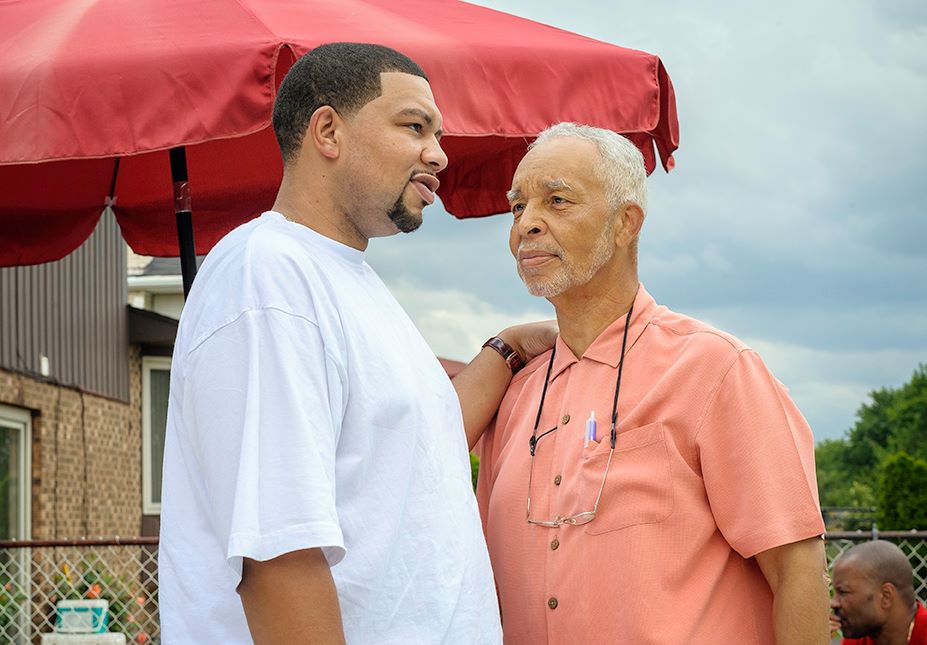
Starting when I was six or seven years old, every night I had to read for an hour. And I grew up in the kind of household that was kind of centered in Pan Africanism in our belief system. So we had a huge library in the house, and all of the books were very Black and very rooted in a Pan African doctrine. Our library held books like “Message to the Black Man,;” “They Came Before the Mayflower,.” “Make Me Want to Holler.” They were not the kind of books that would be intriguing to a six- or seven-year-old, but I had those to choose from and I had to read for an hour every night. Early on I despised it. But by the time I was twelve or thirteen, what started as a chore became a love to seek out information, to seek knowledge, to read. And the behaviors that I used to be upset about, now as a man I realize how valuable they were.
My dad was a Vietnam veteran. I was born on the cusp of the reaction to Black men coming home from Vietnam and heroin. I often think back to the neighborhood which I grew up in. I had twelve close friends, and my daddy was everybody’s daddy, because they didn’t have daddies. Having a man in my life, allowed me to understand how to command respect rather than demand respect. It was almost like it was given to me, whereas my friends had to figure it out, or to behave in certain ways to obtain it. And I didn’t grasp it at the time, but today I can see it very clearly. When a young boy doesn’t have a father or a role model or someone readily available, they don’t have the guidance, they don’t know what a man would do. I think rap music is a great representation of that. You can see the overcompensation of bravado, the overcompensation in toughness, and I don’t know every rapper’s story but for me it’s a level of posturing in masculinity, and ultimately you don’t feel masculine at all.
One of my Dad’s favorite books was “The Prophet” by Kalil Gibran. It’s a very short, easy read. The book may have a hundred pages. He would always talk about how it was so important to him and how it changed his life, and just because I had this admiration for him, I started reading it when I was around fifteen. The first time I read it I was like, “Man, this book is trash, I don’t know what he sees in it. This is the worse book I ever read.” And every couple of years I would pick it up again, trying to find what he saw in that book, why it was so valuable to him. Each time I would think maybe I had matured to a different level; maybe I would read the words in a different way, maybe I’d see something different. And every time I came away less enthused than when I started. And when my Dad passed away, something in the Universe called me to that book and I read it again, and in that moment, it was the most enlightened book I’d ever read. That was a representation of the relationship I had with my dad. He was always trying to get me to understand, and I was fighting back. But I also think my fighting back was a resemblance of how he raised me as well. When you have a belief, you stand on it. You have courage. If you believe in yourself you don’t bend, you don’t break, you stand for what you believe. He also raised me to be open to information. He would say, “master the environment which you inherited.” “Don’t let anybody break you.” “Master it and then own it”. And today, I’m trying to impose that philosophy on my own son.
My son is turning eighteen and he’s graduating this year. I’m always intrigued by how much our dynamics resemble the dynamics between me and my dad. It might be a hunger, it might even be a fear, but all those lessons he was rejecting from me earlier, now at eighteen, he’s craving them. He knows he’s entering into a different stage in his life, If I was able to step outside of myself and look at our relationship from a bird’s eye view, I’d argue that in contrast to his friends’ upbringing, I’m probably a very hard man. But I also thinks that he understands that there’s probably not a great representation of manhood in our community, and he appreciates that because it provides the level of balance that I don’t think he can witness in his friends, because they don’t have a pillar like I am to him.
We often struggle, but he’s getting it together and when he gets to a certain space it’s going to be very clear. I recently heard that fathers endure three stages: idolization, demonization and then humanization. You idolize me first, then you’re going to demonize me, and then at the end of it, you’re going to humanize me. I think that’s the experience I had with my dad. I think that’s very similar to the experience I’m having as a father today.
